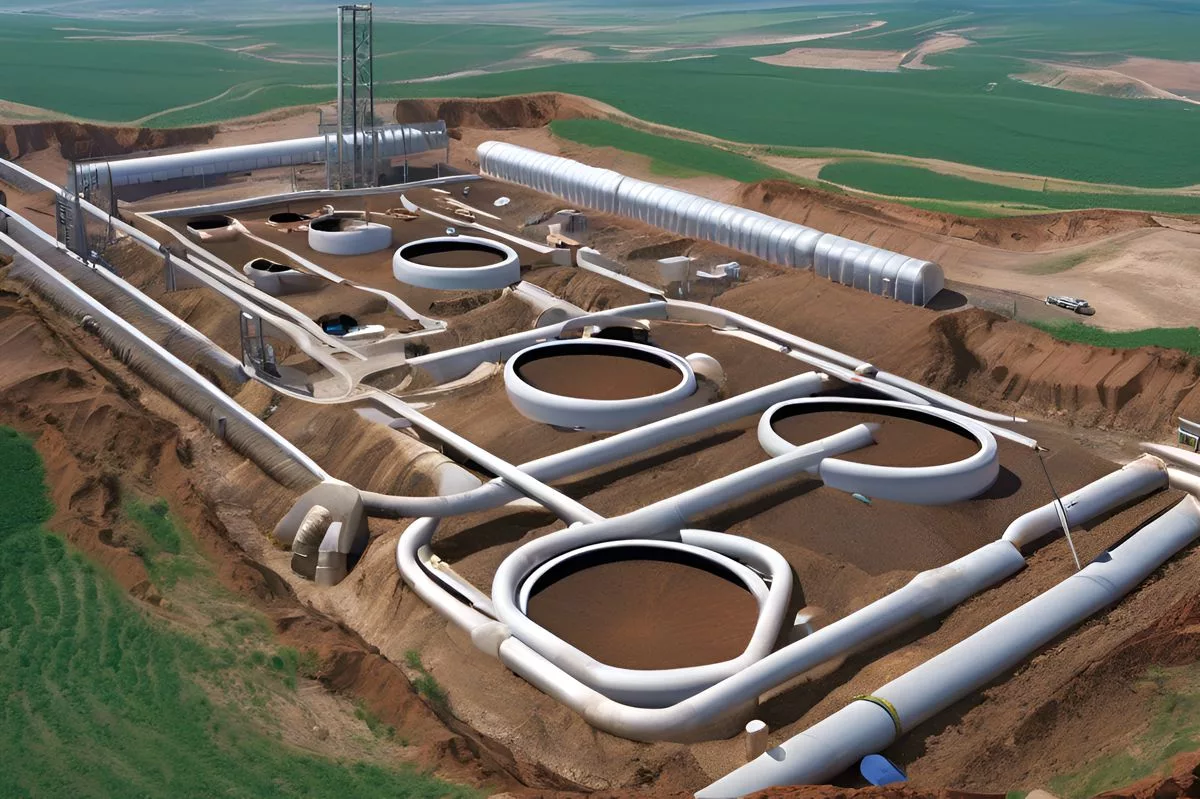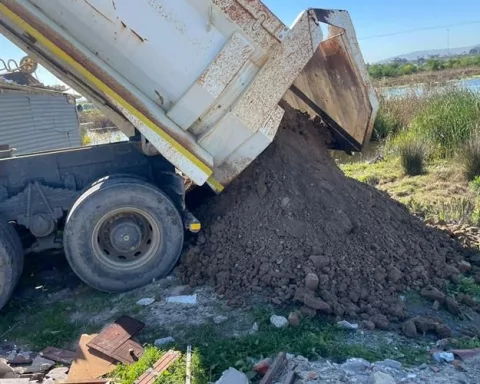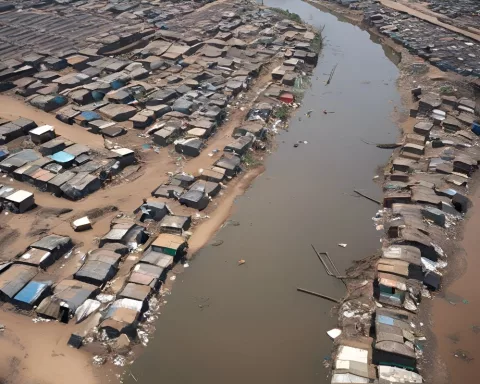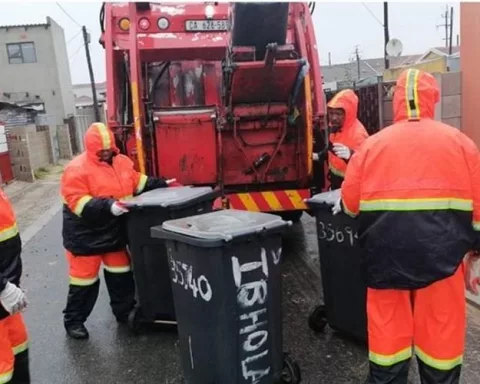Cape Town is leading the fight against climate change with its innovative waste-to-energy project, which has generated R36 million in carbon credit auctions. The project involves using infrastructure to extract methane gas from landfill sites and turn it into electricity, reducing greenhouse gas emissions. The accumulated funds will be reinvested into urban waste management projects to improve the city’s environmental health landscape. Cape Town’s pioneering initiative serves as a blueprint for sustainable urban development.
Cape Town has launched a pioneering project using carbon credits to reduce greenhouse gas emissions from landfill sites through waste-to-energy initiatives. By utilizing infrastructure capable of annihilating landfill gas via flaring and generating electricity from the extracted methane gas, the city has already amassed R36 million in a carbon credit auction. The accumulated funds will be reinvested into urban waste management projects to foster a better environmental health landscape.
Innovative Initiative to Minimize Greenhouse Emissions
In a proactive effort to counteract the pernicious impact of greenhouse gas emissions, Cape Town has launched a far-reaching project, which has thus far amassed R36 million in a carbon credit auction. This initiative, which emphasizes the transformation of waste into energy, signifies a potentially significant stride in the enduring conflict against climate change.
Carbon credits serve as a financial instrument, developed to promote the decrease of greenhouse gas emissions. This system operates within legal boundaries which restrict the volume of carbon dioxide that an entity – whether it be a corporation, society, or even local government body – is allowed to release. If the entity surpasses these constraints, it has the option to acquire a carbon credit to balance out its excess emissions.
In this context, Cape Town is utilizing carbon credits to support a project that aims to diminish greenhouse gas emissions from its landfill sites through waste-to-energy initiatives. The City has declared that carbon credits are accrued for each ton of greenhouse gas that is eradicated through City projects that have been sanctioned by the UN-endorsed Clean Development Mechanism (CDM).
Targeting Methane Emissions through Innovative Urban Waste Management Strategies
To specifically address methane emissions, an exceptionally powerful greenhouse gas, the City has installed landfill gas infrastructure at its Bellville, Coastal Park, and Vissershok landfill sites. The waste-to-energy project launched in 2018 at the Coastal Park landfill site has already garnered R36 million from the City’s inaugural auction of carbon credits. The accumulated funds will be reinvested into urban waste management projects, with the aim of diminishing pollution and fostering a better environmental health landscape.
Cape Town Mayor, Geordin Hill-Lewis, applauds this accomplishment, stating, “We embrace this initial return of R36 million from our first carbon credit auction. We are just beginning to escalate our waste-to-energy initiatives at our landfill sites.” This measure constitutes an element of the City’s committed endeavor to tackle climate change, with roughly 40% of Cape Town’s record R120 billion 10-year infrastructure pipeline being allocated to fortify the city’s climate change resilience.
Leveraging Unique Infrastructural Capabilities to Combat Climate Change
This fight against climate change is reinforced by the City’s distinctive infrastructural proficiencies. The City possesses infrastructure capable of annihilating landfill gas via flaring before it is released into the atmosphere. In addition, waste-to-energy infrastructure has been established, with electricity generation from the Coastal Park and Vissershok projects anticipated within the present 2024/25 financial year.
The procedure involves the installation of perforated pipes or ‘wells’ dug into landfill sites to extract methane gas. This gas is subsequently directed as fuel to generate electricity, which will power the operations at the landfill sites. According to Grant Twigg, mayoral committee member for Urban Waste Management, “We anticipate our landfill waste-to-energy initiatives to become self-financing over time due to the sale of carbon credits and reduction in bulk electricity purchases from Eskom.”
Harnessing the Power of Sustainability-Driven Projects
Cape Town’s pioneering endeavor serves as a testament to the transformative potential of innovative, sustainability-driven projects. By leveraging carbon credits and sophisticated waste-to-energy initiatives, the City has devised a blueprint for a cleaner, greener future. This future encompasses the potential for reduced emissions, sustainable energy production, and financial returns. The city’s success is an invitation for other cities to adopt similar strategies to combat climate change and promote sustainable urban development.
1. What is Cape Town’s waste-to-energy project?
Cape Town’s waste-to-energy project involves using infrastructure to extract methane gas from landfill sites and turn it into electricity, reducing greenhouse gas emissions.
2. What are carbon credits?
Carbon credits serve as a financial instrument, developed to promote the decrease of greenhouse gas emissions. This system operates within legal boundaries which restrict the volume of carbon dioxide that an entity is allowed to release.
3. How has Cape Town utilized carbon credits in their waste-to-energy project?
Cape Town is utilizing carbon credits to support a project that aims to diminish greenhouse gas emissions from its landfill sites through waste-to-energy initiatives. The City has declared that carbon credits are accrued for each ton of greenhouse gas that is eradicated through City projects that have been sanctioned by the UN-endorsed Clean Development Mechanism (CDM).
4. How has Cape Town targeted methane emissions through their waste management strategies?
To specifically address methane emissions, the City has installed landfill gas infrastructure at its Bellville, Coastal Park, and Vissershok landfill sites. The waste-to-energy project launched in 2018 at the Coastal Park landfill site has already garnered R36 million from the City’s inaugural auction of carbon credits.
5. What is the City’s plan for the accumulated funds from the carbon credit auctions?
The accumulated funds will be reinvested into urban waste management projects, with the aim of diminishing pollution and fostering a better environmental health landscape.
6. How does Cape Town’s waste-to-energy project serve as a blueprint for sustainable urban development?
Cape Town’s pioneering endeavor serves as a testament to the transformative potential of innovative, sustainability-driven projects. By leveraging carbon credits and sophisticated waste-to-energy initiatives, the City has devised a blueprint for a cleaner, greener future. This future encompasses the potential for reduced emissions, sustainable energy production, and financial returns.












